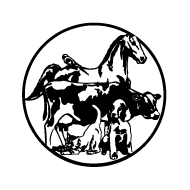Feeding Your Canary
In the wild, canaries eat a wide variety of seeds, especially from grasses, and as availability changes with the season, they consume many different seeds resulting in a balanced diet containing a wide variety of proteins, carbohydrates, fats, vitamins and minerals. They also supplement their diet with insects and other vegetation.
What seeds does my canary eat?
In the wild, canaries have different seeds available at different times of the year, so they eat a wide variety to meet their nutritional demands. Seed mixtures available for canaries contain as few as 2 types of seed, and canaries often pick out their favourite seed first, so that if a large quantity of seed mix is always available, they may only be eating one type of food. Millet seed is commonly the favourite seed.
How do I ensure my bird is eating a variety of seed?
By limiting the amount of food offered, to the amount that a bird can eat in 24 hours, you will ensure that all the types of seed are eaten. On average, a bird will consume 1 ½ - 2 level teaspoons of seed mix per day. Present the food on a shallow dish, and provide more than one dish if you have more than one bird in the cage to allow the birds at the bottom of the pecking order to eat a balanced diet. If you provide millet sprays or honey sticks, make sure these are not eaten preferentially, although they usually are.
Are pellets better for feeding my canary?
Pellets, crumbles or mashes are combinations of seeds and therefore nutrients, and provide the best balanced diet for your bird. However, it can be very difficult to convert a seed-eating canary to pelleted food. This is because the pellets are not recognised as food. Offer the pellets in a separate dish as you gradually reduce the amount of seed given per day. It can take months to convert your bird. If you are concerned your bird is not eating enough as it refuses the pellets as you reduce the seed, consult your veterinarian.
Do canaries need fruit and vegetables?
Fruit and vegetables are essential parts of the diet, and should comprise about ¼ of the diet. Wash all items well to remove chemical residues and cut them into manageable sized pieces. You may need to offer a wide variety to encourage a bird to eat them if he has not had them before. Even if your bird refuses something one day, try it again later. Spinach and dark-leaved vegetables are much more nutritious than light-leaved ones, like lettuce. Avocado is reportedly toxic to canaries.
What else can I feed my canary?
Birds can and will eat a large variety of ‘human’ foods like meat, and dairy products. Small amounts are allowable, but don’t give ‘junk food’.
Should I use vitamin supplements?
A bird that is consuming a balanced diet should not require supplementation, although there are many opinions on this. Supplements may be indicated for some medical conditions, or in convalescing birds. Powdered supplements mixed in the water or sprinkled on moist food are the best way of giving supplements.
Does my canary require grit?
This is a controversial subject since wild birds will ingest small amounts of pebbles and grit while eating, which helps digestion of seeds. You can offer grit in a separate dish, so your bird can choose whether to eat it.
- Last updated 16 November 2012
